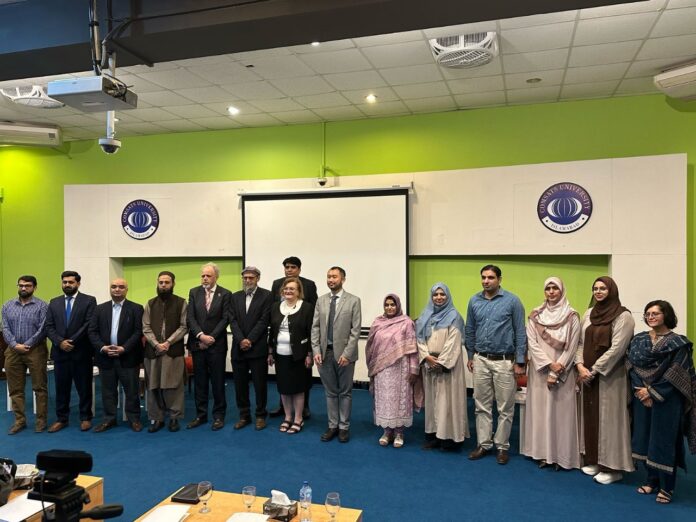- Advertisement -
ISLAMABAD, Apr 29 (APP): Pakistan Council of Research in Water Resources (PCRWR) in collaboration with UNESCO and other partners, successfully commemorated World Water Day 2025 under the theme “Glacier Preservation.”
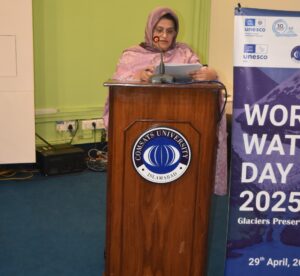
The event also marked the official launch of the United Nations World Water Development Report 2025 in Pakistan, said a press release issued here Tuesday.
The UN World Water Development Report 2025, Mountains and Glaciers: Water Towers, highlights the critical role of glaciers in global water security and warns of severe consequences from their rapid retreat due to climate change, it said.
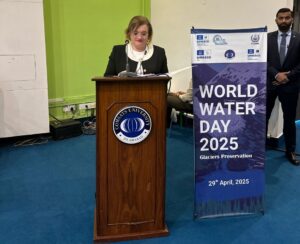
For glacier-dependent countries like Pakistan, this poses serious risks to agriculture, energy, and water supply. The report urges urgent international cooperation, data-driven policy, and regional collaboration to safeguard these vital resources, the press release said.
Mr. Kar Hung Antony Tam, the Officer-in-Charge of the UNESCO Office in Pakistan, in his opening remarks, stated: “Glacier preservation is critical for global water security and sustainable development. Glaciers, often referred to as the water towers of the world, store nearly 69% of the Earth’s freshwater. Yet, they are melting at an alarming rate, threatening food, energy, and water security, as well as human safety.”
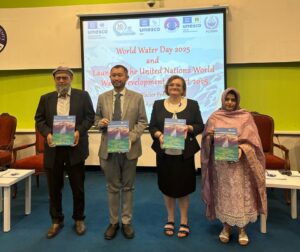
In his welcome address, Prof. Dr. Sajid Qamar, Rector of COMSATS University, highlighted the vital role of glaciers play in sustaining freshwater resources, especially for countries like Pakistan that depend heavily on glacial meltwater.
He underscored the urgency of coordinated research, education, and policy initiatives to address the impacts of climate change on glacial systems.
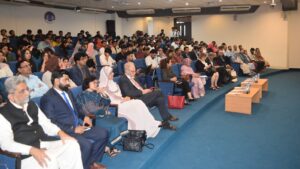
He reaffirmed COMSATS University’s commitment to advancing scientific knowledge and fostering collaborative efforts to protect these critical natural assets for the benefit of future generations.
Dr. Hifza Rasheed, Director General of PCRWR, emphasized the increasing vulnerability of Pakistan’s water resources due to the rapid retreat of glaciers in the Himalayan, Karakoram, and Hindu Kush ranges.
She noted that glacier preservation is not only an environmental imperative but a national priority with direct consequences for agriculture, livelihoods, and long-term water security.
Dr. Rasheed called for enhanced data collection, advanced research, and science-based policymaking, while also advocating for stronger regional cooperation and knowledge-sharing to address common climate challenges.
In her keynote address, Marilina Armellin, Ambassador of Italy to Pakistan, reiterated Italy’s commitment to climate action and glacier conservation.
She shared that Italy had recently updated its glacier inventory to better understand the impacts of climate change.
Emphasizing the principle of “leave no one behind,” the ambassador expressed Italy’s continued support for Pakistan’s efforts in water resource management and climate resilience through technical cooperation and scientific exchange.
Delivering the vote of thanks, Prof. Dr. Muhammad Abid, UNESCO Chair on Knowledge Systems for Integrated Water Resources Management in Pakistan, expressed his appreciation to all speakers, partners, and participants for contributing to the success of the event.
He highlighted the critical role of collaborative platforms in tackling shared water challenges and stressed the importance of safeguarding glaciers in the face of accelerating climate change.
He also noted the significance of academic and research institutions in generating evidence, shaping policy, and engaging youth in sustainable water practices.
A panel discussion titled “Melting Giants: Safeguarding Glaciers for Water Security and Climate Resilience” brought together experts who examined the threats to glaciers and potential strategies for their preservation.
The discussion emphasized the urgent need for global collaboration to combat glacier loss and secure the water future.
In line with this year’s theme, two student competitions were organized: an Inter-University Research Competition and a Youth Video Competition. Both attracted significant youth participation, and the top three entries from each were showcased during the event.
The event underscored the critical need for coordinated global action to safeguard glaciers, vital lifelines for water security. As climate change continues to accelerate glacier melts, the global community must act urgently and collectively to protect these essential resources for future generations.

